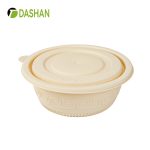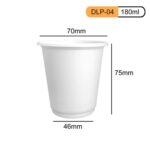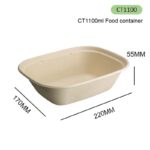Introduction
Disposable cups are everywhere—from coffee shops and bubble tea houses to catering events and quick-service restaurants. For many businesses, choosing the right cup is about more than just convenience; it’s a balance of cost, durability, branding, and sustainability.
Yet, despite being so common, there are several surprising facts about disposable cups that businesses often overlook. In this article, we’ll share 6 easy-to-ignore but crucial facts about disposable cups, while also introducing how Xiamen Dashan, a global packaging manufacturer, provides innovative solutions across PET, PP, PLA, and bagasse materials.
Fact 1: Material Matters More Than You Think
The material of a cup determines not just its function, but also its environmental footprint.
-
Plastic Cups (PET, PP, PS): Widely used for cold drinks like sodas, iced coffee, and smoothies. Dashan’s PET and PP cups are food-grade, leak-proof, and customizable for branding.
-
Paper Cups: Common in coffee shops, but often coated with plastic or wax, making them harder to recycle. Dashan offers eco-friendly laminated and non-laminated paper cup solutions.
-
Foam Cups (Polystyrene): Known for insulation but non-recyclable in many regions.
-
Sustainable Options:
-
Bagasse Cups (Sugarcane Pulp): Biodegradable, compostable, and microwave safe. Dashan’s bagasse series is ideal for eco-conscious businesses.
-
PLA Cups: Made from renewable cornstarch or sugarcane, clear like plastic, compostable under industrial conditions.
-
Bamboo Fiber Cups: Natural look, biodegradable, and gaining traction among premium eco-friendly brands.
-
👉 Dashan Advantage: Offering a full material portfolio, we help businesses choose the right balance of performance, price, and sustainability.
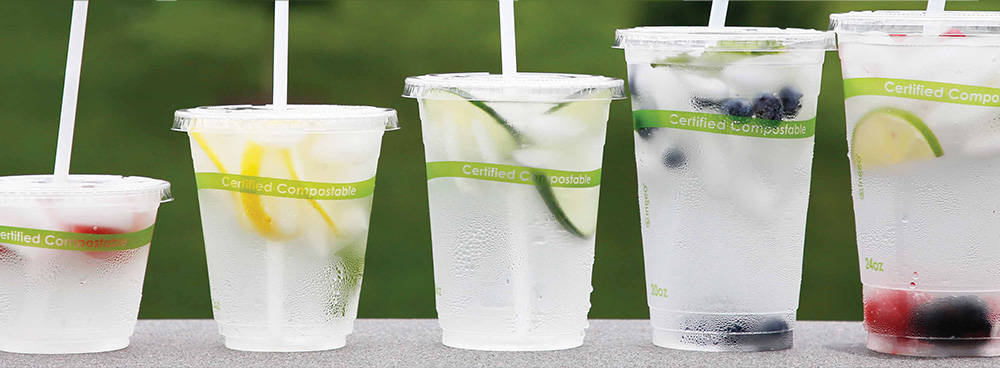
Fact 2: Single-Wall vs. Double-Wall Isn’t Just About Price
Cups are not all equal in structure.
-
Single-Wall Cups: Lightweight, cost-effective, great for cold drinks or smaller hot beverages (with sleeves).
-
Double-Wall Cups: Provide insulation without sleeves, perfect for hot coffee and tea.
👉 Dashan Insight: For premium coffee and tea brands, our double-wall paper cups reduce heat transfer, improving customer comfort and brand perception.
Fact 3: Cup Shape Influences Functionality
Shape impacts both customer experience and storage efficiency.
-
Straight-Sided Cups: Stackable, stable, efficient for vending and storage.
-
Wide-Mouth Cups: Ideal for bubble tea, lattes, and smoothies, allowing space for straws, toppings, or mixing.
👉 Dashan Example: Many of our clients in the bubble tea industry choose Dashan’s custom wide-mouth PP and PET cups for sealing and topping flexibility.
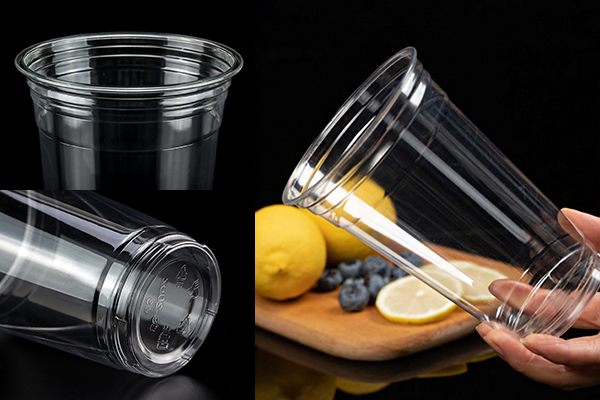
Fact 4: Coatings Can Make or Break Sustainability
Not all paper or fiber cups are equal—coatings determine recyclability.
-
Laminated Cups: Prevent leaks but harder to recycle.
-
Non-Laminated Cups: More eco-friendly, compostable, but less resistant to hot liquids.
👉 Dashan Advantage: We provide EN13432 and OK Compost certified solutions, ensuring eco-compliance without sacrificing performance.
Fact 5: Molding Process Affects Quality
Fiber-based disposable cups (like bagasse or bamboo) use two main processes:
-
Wet-Molded Fiber: Smooth finish, customizable, premium look—perfect for branded cups.
-
Dry-Molded Fiber: Cheaper, rougher surface, often chosen for bulk needs.
👉 Dashan Application: Our wet-molded bagasse products ensure both aesthetics and durability, meeting the needs of international retailers and food chains.
Fact 6: The Lid Matters as Much as the Cup
The drinking experience depends heavily on the lid. Dashan offers all major types:
-
Flat Lids – Standard for iced drinks.
-
Dome Lids – Great for frappes, smoothies, and bubble tea toppings.
-
Sipper Lids – Ideal for hot coffee and tea.
-
Snap-On Secure Lids – Prevent leaks during delivery and takeaway.
👉 Dashan Innovation: We design custom-fit lids for our PET, PP, and paper cup ranges, ensuring spill-free convenience.



FAQs
1. What types of disposable cups does Dashan offer?
We provide PET, PP, PLA, bagasse, and paper cups in various styles for hot and cold beverages.
2. Are your disposable cups biodegradable?
Yes. Our bagasse pulp and PLA cups are 100% biodegradable and compostable under the right conditions.
3. What sizes are available?
Dashan offers cups ranging from 1 oz tasting cups to 32 oz jumbo beverage cups, meeting different business needs.
4. Can I customize my order?
Absolutely! We support custom logo printing, color, size, and packaging to enhance your brand.
5. Do your products have certifications?
Yes. Dashan products comply with FDA, EU, QS, NSF, and EN13432 standards, ensuring global food safety compliance.
Conclusion
Disposable cups may look simple, but the right choice depends on material, structure, shape, coatings, molding, and lids. By paying attention to these six often-overlooked facts, businesses can make smarter choices that improve customer satisfaction and reduce environmental impact.
👉 Why Choose Dashan?
With a complete range of PET, PP, PLA, bagasse, and paper disposable cups, Xiamen Dashan helps businesses worldwide find the perfect balance between cost, functionality, and sustainability.
Whether you’re running a coffee shop, milk tea chain, or catering service, our certified, customizable, eco-friendly cups and lids are engineered to elevate your brand and protect the planet.
📩 Contact Dashan today to discover how our innovative packaging solutions can support your business growth.
References
-
U.S. Environmental Protection Agency (EPA) – Sustainable Management of Foodservice Packaging
https://www.epa.gov/smm/sustainable-management-foodservice-packaging -
European Commission – Single-Use Plastics Directive (SUPD) and Sustainable Packaging Goals
https://environment.ec.europa.eu/topics/plastics/single-use-plastics_en -
National Renewable Energy Laboratory (NREL) – Bioplastics Research and Market Development
https://www.nrel.gov/research/bioplastics.html -
Foodservice Packaging Institute (FPI) – Trends and Facts about Disposable Cups
https://www.fpi.org -
Ellen MacArthur Foundation – The New Plastics Economy: Rethinking the Future of Plastics
https://ellenmacarthurfoundation.org/the-new-plastics-economy
Disclaimer & Copyright Notice
This article is created by the Dashan Packing editorial and research team.All information presented here is for educational and industry reference purposes only.Some data and standards cited in this article are sourced from publicly available materials,official regulatory documents, or third-party publications, which are properly credited where applicable.
All rights to third-party trademarks, images, and content belong to their respective owners.If any copyrighted material has been used inadvertently, please contact us at angel@chndashan.com.We respect intellectual property rights and will promptly remove or revise any material upon verification.


